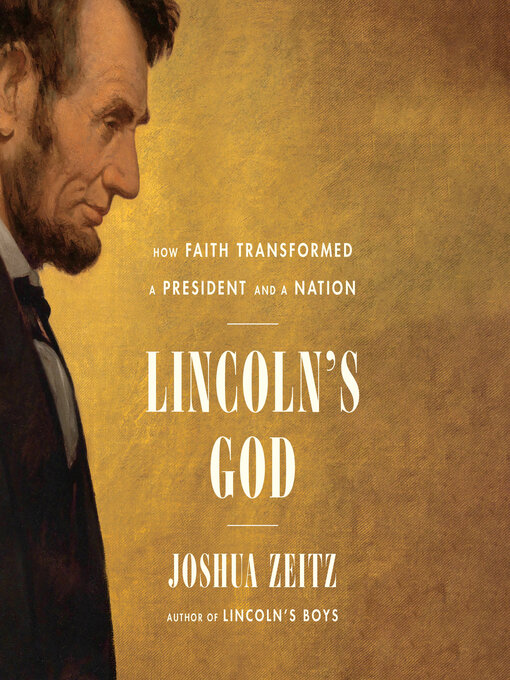- Arts & Crafts
- Fitness and Health
- Outdoor Recreation
- Biography & Memoir
- Business
- History
- All Nonfiction
- See all
Abraham Lincoln, unlike most of his political brethren, kept organized Christianity at arm’s length. He never joined a church and only sometimes attended Sunday services with his wife. But as he came to appreciate the growing political and military importance of the Christian community, and when death touched the Lincoln household in an awful, intimate way, the erstwhile skeptic effectively evolved into a believer and harnessed the power of evangelical Protestantism to rally the nation to arms. The war, he told Americans, was divine retribution for the sin of slavery.
This is the story of that transformation and the ways in which religion helped millions of Northerners interpret the carnage and political upheaval of the 1850s and 1860s. Rather than focus on battles and personalities, Joshua Zeitz probes ways in which war and spiritual convictions became intertwined. Characters include the famous—Harriet Beecher Stowe, Frederick Douglass, Henry Ward Beecher—as well as ordinary soldiers and their families whose evolving understanding of mortality, heaven, and mission motivated them to fight. Long underestimated in accounts of the Civil War, religion—specifically evangelical Christianity—played an instrumental role on the battlefield and home front, and in the corridors of government.
More than any president before him—or any president after, until George W. Bush—Lincoln harnessed popular religious enthusiasm to build broad-based support for a political party and a cause. A master politician who was sincere about his religion, Lincoln held beliefs that were unconventional—and widely misunderstood then, as now. After his death and the end of an unforgiving war, Americans needed to memorialize Lincoln as a Christian martyr. The truth was, of course, considerably more complicated, as this original book explores.


